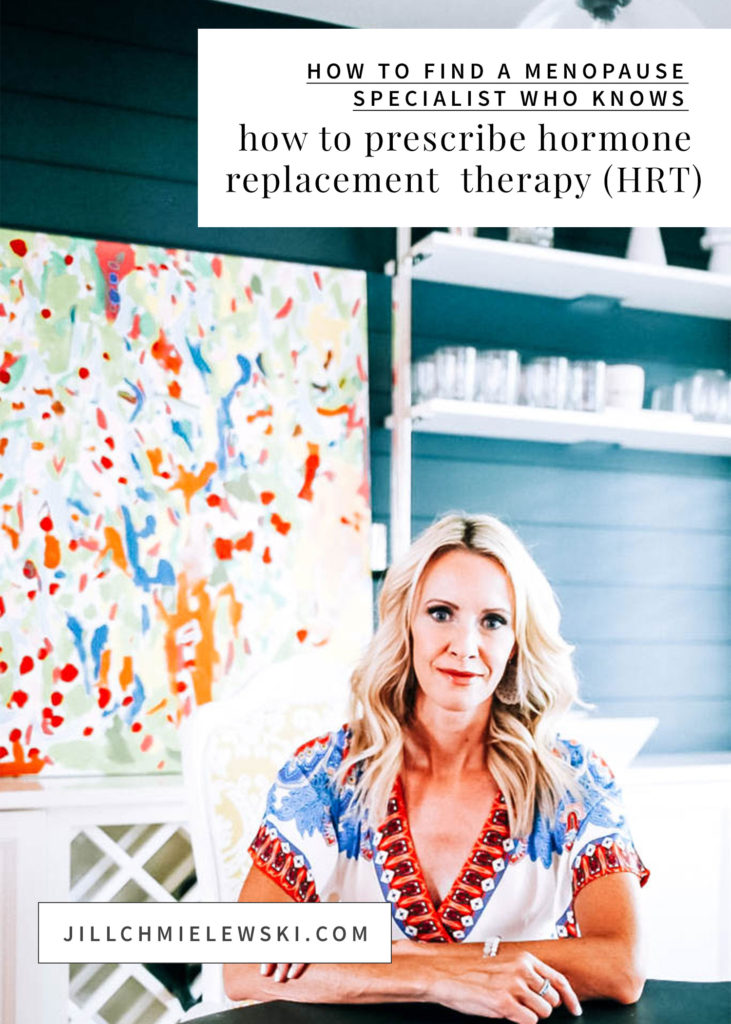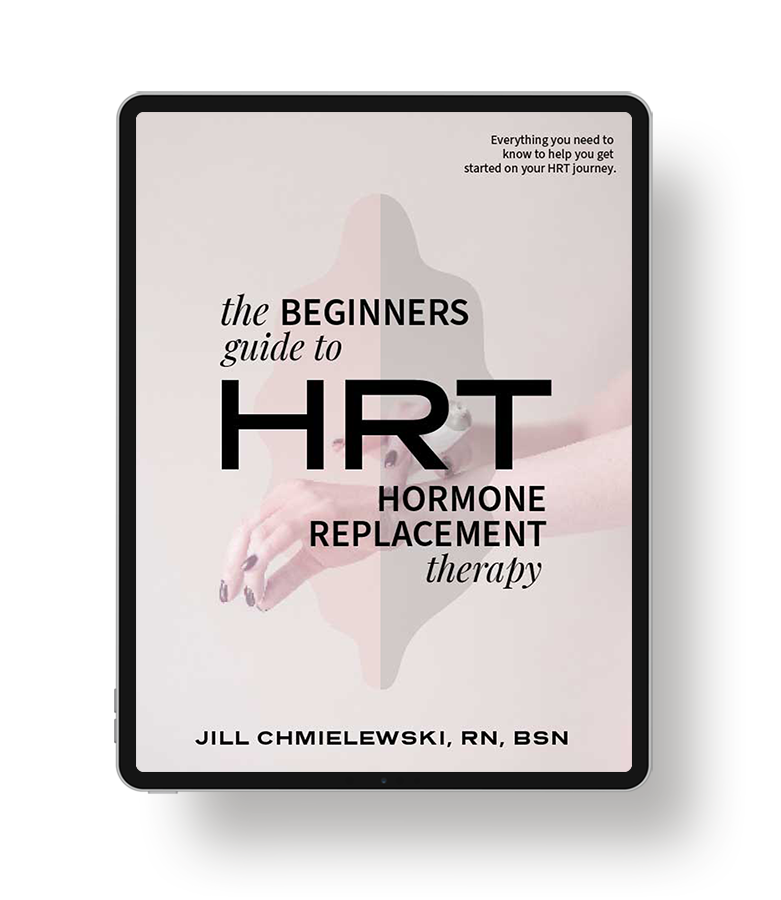So you’ve had it with unrelenting hot flashes and sleepless nights, and you are ready to talk with a specialist about hormone replacement therapy. But how do you find a pausal practitioner who is well versed in menopause medicine and really understands their stuff?
Most women assume that their OB/GYN will be their “go-to” clinician to get started on all things related to menopause and HRT. Assuming that your OB/GYN is a licensed practitioner, they can technically prescribe HRT. That said, in my experience, most OB/GYNs do not have the in-depth expertise or experience related to HRT or have the time to keep up with all the latest research related to hormone replacement therapy.
Most of your OB/GYN’s medical training focused on general reproductive health, preconception planning, pregnancy, labor and delivery, and gynecological surgery. Most medical schools and residency programs don’t teach aspiring physicians about menopause. So, unless your OB/GYN has sought out additional training related to menopause and aging, I recommend seeking out a practitioner who specializes in this area of medicine. An 8-hour weekend seminar isn’t nearly enough to have the knowledge and skills necessary to prescribe and monitor HRT.

Supporting a woman during her reproductive years and delivering babies is an entirely different type of practice than supporting a woman through the peri to menopausal years and beyond.
Hormone restoration is not just about popping a hormone replacement pill. It involves addressing food and lifestyle issues and understanding the systemic functions that hormones play in the body.
This involves years of ongoing training and that a clinician is a critical thinker ~ that is, someone who doesn’t just blindly follow protocols but is critically thinking about you as a person with a complex human body!
If you are looking for a specialist who has been deeply trained in the world of hormones and is a critical thinker, here are your best bets:
- Check out the Menopause Method website and submit a request to find a practitioner in your area. Dr. Daved Rosensweet, MD is the founder of The Menopause Method and the Institute of Bioidentical Medicine’s Menopause Mastery Training Program for practitioners. He is one of the kindest, most compassionate practitioners out there and is also deeply trained in the world of hormones and menopause medicine. You already know if you have watched the Virtual Q & A’s with Dr. Rosensweet in our Pausing Together Membership Community. He has also developed a specialized protocol for post-menopausal women interested in exploring hormone replacement therapy but who have passed the 10-year window (some practitioners will not treat women once they are beyond the 10-year menopause window).
- Call your local compounding pharmacy and ask the pharmacist who they would recommend for bioidentical hormone replacement therapy. Compounding pharmacists work with practitioners daily, and they will know which practitioners know their stuff. You might also consider reaching out to a national pharmacy like Women’s International Pharmacy or PCCA to find a PCCA-member pharmacy.
- The American Academy of Anti-Aging Medicine (A4M) is dedicated to advancing healthcare technologies and transformations that can combat chronic diseases associated with aging. They offer a wide array of advanced training on hormones and HRT. Not all A4M practitioners have advanced training in HRT, so you’ll want to click on their “Resources” tab at the top and follow the tab that says, “Find a Provider.” You can search using keywords or click the checkboxes such as “Bio-Identical Hormone Replacement Therapy,” or “Bioidentical Compounding,” or “Women’s Health” to find a prescribing clinician.
- Check out the Institute for Functional Medicine website and use the “Find a Practitioner” tab to search for a hormone specialist.
Paying for an HRT specialist
One of the things that women find most shocking when seeking out an HRT clinician is that they often must pay out-of-pocket (fully or partially) for services. Please don’t let this deter you from seeking a menopause specialty clinician.
Clinicians who are highly trained and experienced in menopause medicine and HRT have completed lots of continuing education, training, and hands-on clinical hours seeing patients just like you. To boot, they understand the importance of treating and supporting a woman’s whole body as she ages and that it requires a lot more than a one-time 15-minute clinical visit. They often set up their practice to accommodate longer patient visits to provide holistic, comprehensive care to their patients. They often practice as out-of-network clinicians because they don’t want their practice subject to insurance-dictated rules.
Here are a couple of things to keep in mind if you are pursuing HRT:
- Your first visit is typically your longest and most expensive.
- You’ll likely have the most significant number of visits during your first year on HRT.
- You can ask your clinician’s office for a Superbill to submit to your insurance company for reimbursement. Be sure to check your insurance company’s out-of-network coverage.
- When making your appointment, be sure to ask about their pricing information and policies so that you know what to expect.
- You must pay for people’s expertise. If you’ve ever hired a lawyer or worked with a consultant, you are typically billed $100 or more just for a mere15-minute phone call. Paying a few hundred dollars per hour with a highly trained clinical expert who gets to know you deeply and delivers excellent care…well, I would say that is invaluable.
The bottom line is this: If you are willing to fork over money for a daily Starbucks, your kids’ travel soccer, salon-quality aesthetics, hair care services, and any other “extra,” I would hope you would be willing to invest in your health. If you aren’t willing to pay a little extra to work with a clinical expert to help you be well, at some point, you may find yourself paying a lot more for medications and other treatments later down the line.





